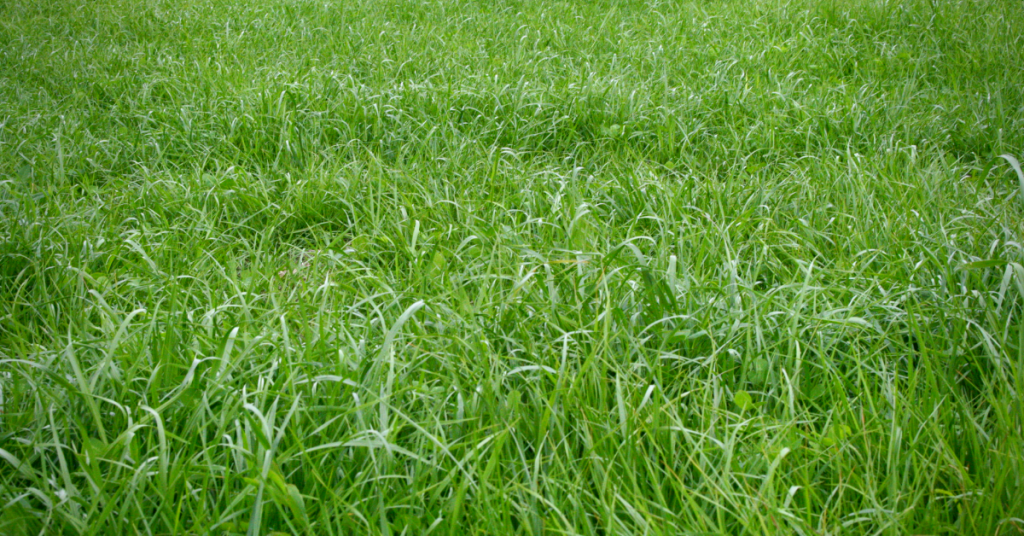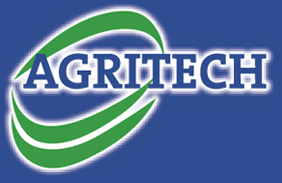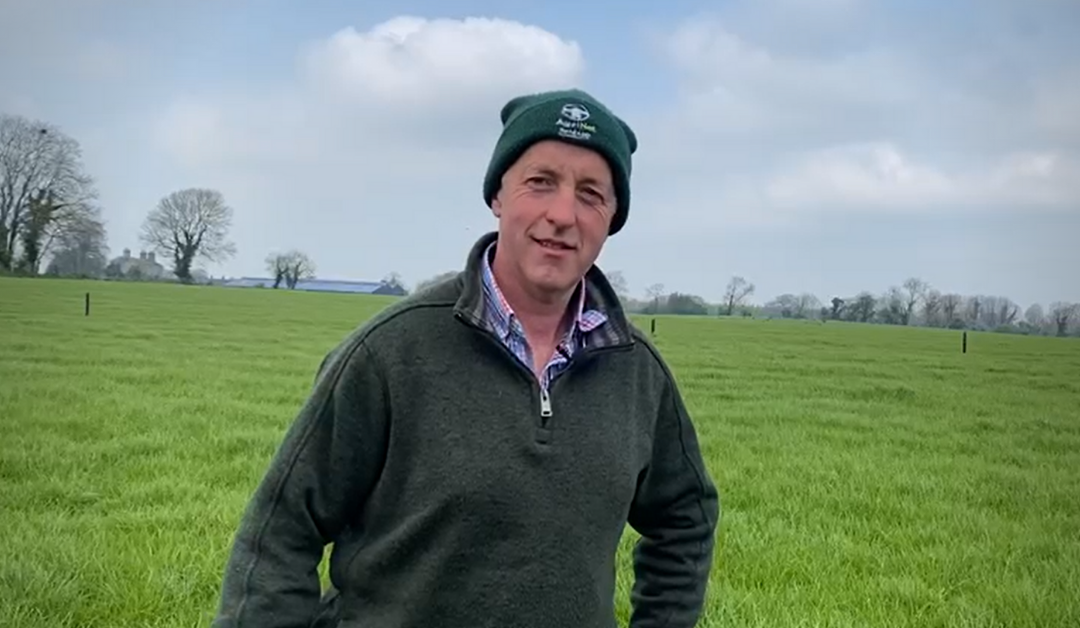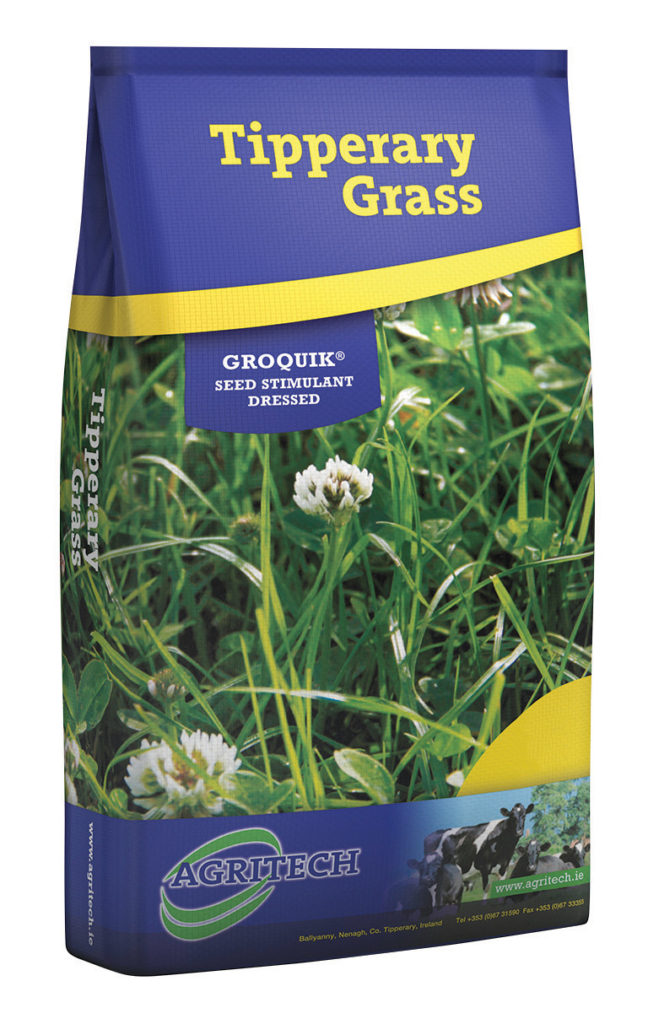Meath farmer, Sean Roche runs a spring calving, 155-dairy herd alongside his two sons, Eamon and Jim. As a new entrant to dairy farming in 2018, the farm consisted of old permanent pastures, however over the last 3 years, they have placed a huge focus on regular reseeding coupled with high-quality grass mixtures.
Sean has been an advocate of the Tipperary Grass Seed Mixtures for the last three years and in the video below he discusses the benefits of moving to grass mixtures with higher inclusions of tetraploids.
“Since moving into dairy farming, reseeding is a no-brainer for us. There is no doubt that new grass is far superior in the shoulders of the year when I need it most,” says Sean.
According to Agritech’s Head of Ruminant Nutrition Maeve Regan, “From an economic perspective, old underperforming swards are costing dairy farmers €300/ha in loss of DM production during the growing season. Reseeding should be viewed as a long-term farm investment over 8-10 years, with the aim to reseed 10% of the farm annually.
“Having grass available for grazing during the important shoulders of the year must be a key priority for farmers. Spring grass has a value of €0.16 cent/kg DM versus summer grass valued at €0.04 cent/kg DM, and autumn grass, valued at €0.11cent/kg DM.”
Grass mixture choice
Modern grass seed mixtures need to achieve a combination of higher production, digestibility, palatability, and persistency in the reseeded sward. These are the key characteristics that serve to give farmers the highest return possible from their investment, with increased animal performance being the ultimate aim.
Maeve claims, “Your grass seed mixture must fit the system it is intended for. Soil type and climate will influence your choice; however, is it going to be used for grazing, silage, or perhaps a dual-purpose sward?”

Tetraploids vs diploids
In more recent years, tetraploids have become a key component of modern grass seed mixtures, having proven to be more palatable to livestock and drought tolerant. They have a higher leaf availability and accommodate clover quite well.
Diploids on the other hand have historically been known to have good sward density and groundcover, however, more recently there has been an emergence of new tetraploid varieties that hold some of these key traits.
“The new highly-rated tetraploid variety, Nashota does exactly this as it delivers all the benefits of a tetraploid and is ranked higher than leading diploids for groundcover.
“Agritech have pioneered the inclusion of high levels of tetraploids in their Tipperary Grass Seed Mixtures since 1977, and with varieties like Nashota now available, we can take this a step further,” says Maeve.
Top grass varieties available from Agritech
Nashota, AberPlentiful, AberBite and Callan are some of the top varieties available from the 2021 Tipperary Grass Seed Range.
All Tipperary Grass Seed mixtures are treated with a unique GroQuik Seed Stimulant, to further enhance germination rates and crop lifetime production. GroQuik is particularly beneficial for the germination of clover, and considering future regulations which may be coming down the track, this is another added benefit to factor in.
Get In Touch
For further reseeding advice or to choose a suitable grass seed mixture, contact your local Agritech Sales Advisor or click here.



